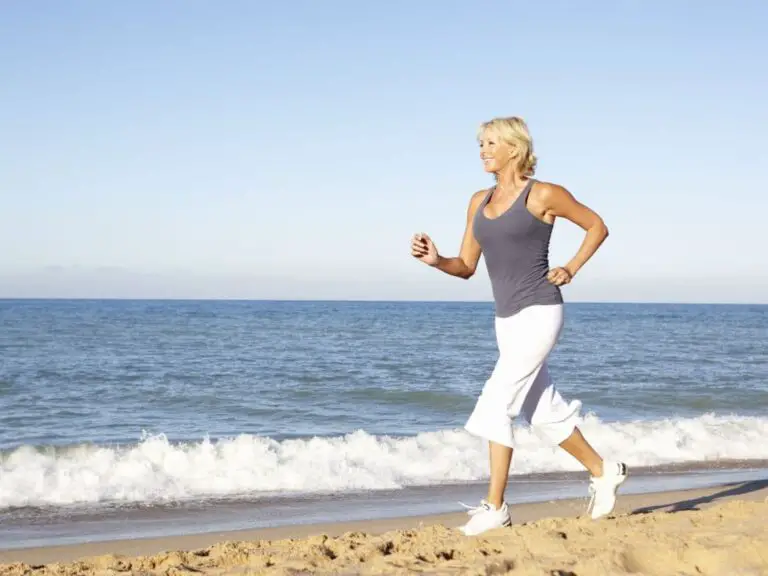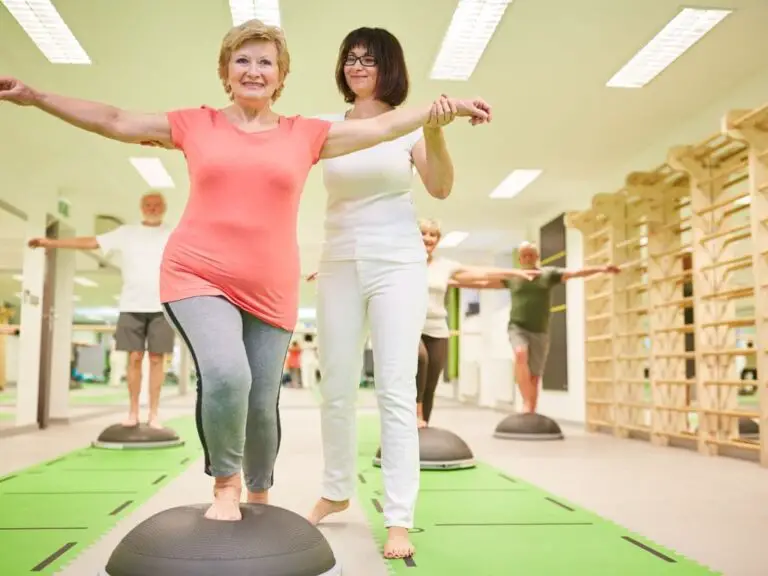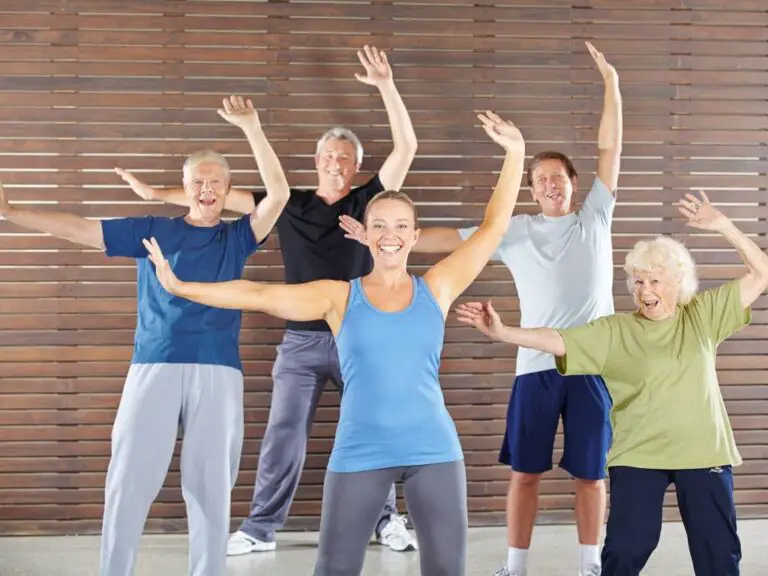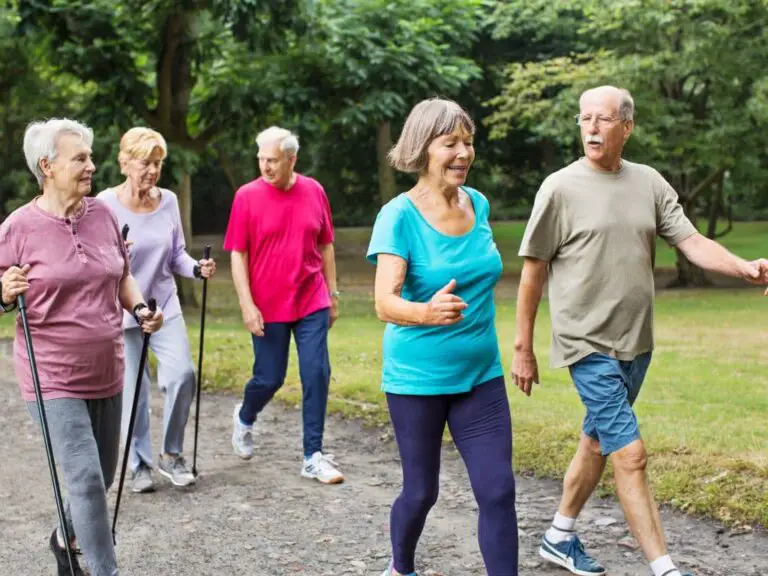What Do Seniors Do at a Retreat?
Attending a retreat designed specifically for seniors can be an enriching and rewarding experience. Retreats provide seniors with an opportunity to get away from the stresses of everyday life and focus on self-care, personal growth and connecting with others.
At a senior retreat, seniors engage in a variety of activities designed to promote health, wellness, and quality of life. These include physical activities like yoga or hiking, adventure-based activities such as ropes courses, creative expression through art or music, spiritual and meditation practices, holistic health activities like massage or reiki, educational elements including discussions or games, and relaxation activities such as journaling or reading.
Senior retreats typically incorporate a variety of activities, programs and services aimed at promoting seniors’ overall health, wellness, mindfulness and quality of life.
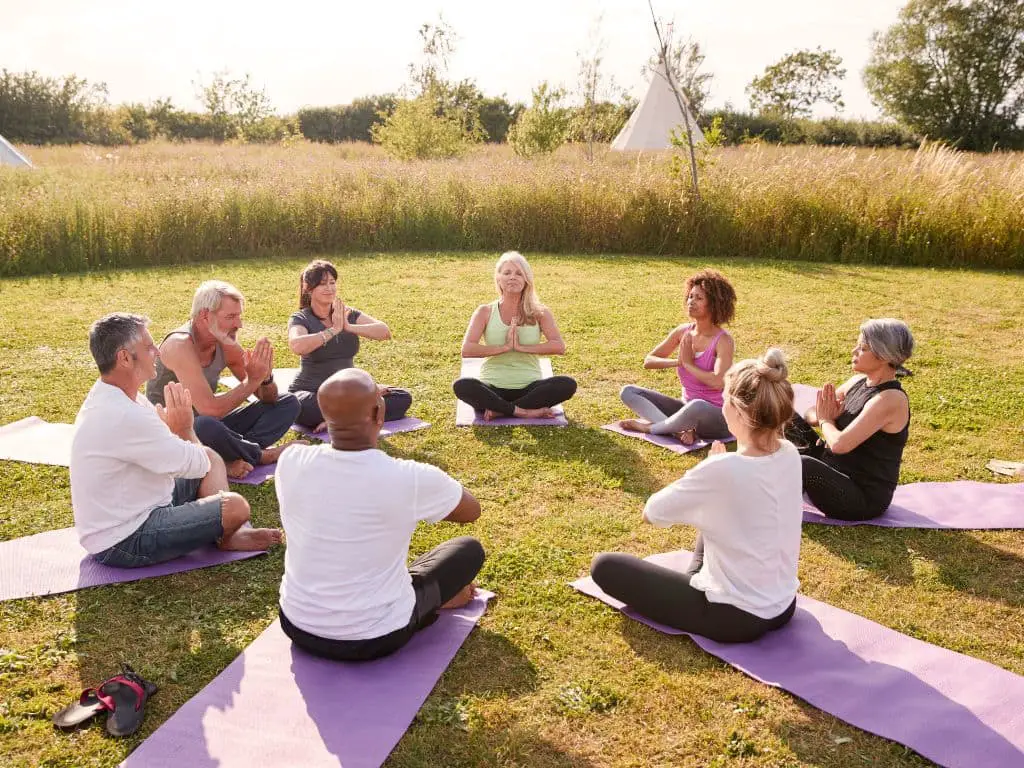
What Types of Activities Are Common at Senior Retreats?
There is great diversity in the types of programming offered at senior retreats. Some common activity themes include:
1. Physical Activities such as Yoga or Hiking
Many senior retreats build gentle physical fitness activities into the schedule, such as yoga classes tailored to seniors’ abilities, tai chi, walking clubs and easy hikes. These types of mild exercise help seniors improve strength, balance and flexibility within their own limits. Being outdoors and moving the body has both physical and mental health benefits for seniors.
2. Adventure Based Activities such as Ropes Course or Whitewater Rafting
For seniors who want more of an adrenaline rush, certain retreats incorporate adventure obstacles courses or excursions like whitewater rafting. Under proper supervision, these types of activities can provide seniors with a sense of accomplishment and fun. Conquering fears and pushing limits helps contribute to emotional and spiritual growth.
3. Creative Expression such as Art or Music
One of the joys of attending a senior retreat is being able to explore creative activities. Retreats often offer art classes in mediums like painting, pottery or quilting. Music lessons or sing-alongs are other popular creative outlets. Engaging the right side of the brain through art helps seniors reduce stress.
4. Spiritual and Meditation Practices
Retreats provide the ideal setting for seniors to connect with their spiritual side. Common offerings include guided meditation sessions, labyrinth walks, worship services, prayer circles and more. These types of contemplative practices allow seniors to reflect on their lives and deepen their faith.
5. Holistic Health Activities such as Massage or Reiki
To promote overall wellness, many retreats incorporate services like massage, reiki, acupuncture and herbalism. These types of holistic therapies aim to bring the body, mind and spirit into balance. Receiving bodywork and energy healing aids seniors with relaxation and pain relief.
6. Educational Elements such as Discussions or Games
One of the central goals of senior retreats is providing learning opportunities relevant to seniors’ lives. This might take the form of guest lectures, book clubs focused on spiritual or personal growth topics, or wisdom-sharing circles. Interactive games and discussions foster community.
7. Relaxation Activities such as Journaling or Reading
Of course, retreats also make ample time for rest and relaxation through activities like journaling, reading for pleasure, napping, enjoying nature and more. After a lifetime of responsibilities, seniors deserve opportunities for self-care and stress relief at a retreat.
What Essential Components Should Be Included in a Senior Retreat?
Certain elements help maximize the experience and make a senior retreat run smoothly. While offerings vary, most high-quality retreats will include:
Pre-Retreat Packet
An informative packet sent to attendees before the event including a schedule, packing list, activity descriptions, lodging details, etc. This helps seniors know what to expect.
Opening and Closing Ceremony
Ceremonies guide participants into and out of the retreat mindset. These may involve rituals, grounding exercises, intention setting and discussions.
Healthy and Nutritious Meals
Providing healthy meals tailored to seniors’ dietary needs and restrictions supports wellness goals. Shared mealtimes also build connections.
Accommodation for Rest
Naps, early bedtimes, sleeping in and resting breaks should be permitted. Adjusting the pace and allowing rest restores energy.
Local Attractions
Day excursions to interesting local sites – like museums, gardens or historic areas – break up retreat activities. New sights inspire.
Transportation and Logistics
Lodging, meals and all activities should be easily accessible. Retreat staff handle transportation to allow seniors to fully engage.
Group Building and Conflict Resolution Exercises
Games, icebreakers and workshops bring participants closer together. Tips for constructively handling disagreements minimize social challenges.
Professional Facilitation
Knowledgeable retreat leaders guide the experience. Clergy, therapists, health professionals or life coaches make excellent facilitators. Their insight sparks self-discovery.
What Are the Different Types of Senior Retreats?
Senior retreats generally fall into a few main categories, based on the structure and primary area of focus:
Spiritual Retreats
These retreats devote time to introspection, prayer, discussing faith-based topics and listening to clergy members. The goal is spiritual renewal.
Health and Wellness Retreats
A holistic approach is taken, including nutritious food, physical activity tailored for seniors, healing practices and education on wellness.
Personal Growth Retreats
Through workshops, sharing circles and quiet time for reflection, these retreats aim to nurture seniors’ inner lives and relationships. Skills for coping with aging are often addressed.
Creative and Cultural Retreats
The arts, humanities and culture are emphasized through mediums like memoir writing, museum tours, and concerts. Seniors engage intellectually.
Nature Retreats
Peaceful natural settings provide the backdrop. Activities highlight environmental appreciation through hiking, photography, camping, etc.
Adventure Retreats
Under supervision, seniors are encouraged to push their limits via activities mentioned like ropes courses and rafting. Excitement rejuvenates.
There are also cruises, international retreats, retreats for specific demographic groups, and more. Matching the retreat style with individual interests is ideal.
What Are the Benefits of Attending a Senior Retreat?
Attending a thoughtfully designed, structured retreat tailored for seniors provides a wide range of personal benefits, including:
- Improved physical fitness and energy from mild activity
- Lower stress levels and elevated mood from relaxation and fun
- Expanded creativity and learning through classes and workshops
- Deeper spirituality gained through reflection and rituals
- Better sleep, diet and self-care habits activated by new knowledge
- Sense of community and friendship formed through sharing experiences
- Increased self-confidence by trying new things and pushing comfort zones
- Renewed purpose and appreciation of life due to taking time for self-reflection
The shared atmosphere of fellowship combined with personal introspection allows seniors to return home rejuvenated. Making retreating a regular practice sustains these benefits.
What Goals Can People Set for a Senior Retreat?
To maximize the impact, it helps to spend some time before the retreat considering your intention and what you hope to gain. Some examples of meaningful goals include:
- Strengthen my physical health through exercise, nutrition and rest
- Grow spiritually by reading inspirational books and meditating
- Feel more socially connected by opening up to others
- Learn a new skill that brings me joy like painting or guitar
- Read for pleasure and do creative writing to express myself
- Journal about my life experiences and what I have learned
- Pamper myself with massages, facials and hot tub soaks
- Develop tools to better handle stressors in my everyday life
- Gain clarity about priorities and purpose in this stage of life
- Appreciate the beauty of nature through hiking and photography
- Try new activities outside my comfort zone
Setting just a few focused intentions helps provide direction and motivation. Goals will vary based on individual needs.
What Are the Challenges of Attending a Senior Retreat?
While retreats aim to rejuvenate seniors, attending does involve some challenges:
- Being away from home and familiar routines
- Trying new physical activities that are difficult
- Opening up emotionally to strangers
- Navigating interpersonal differences
- Following a set schedule/giving up usual freedoms
- Getting sufficient rest in a new environment
- Managing health conditions outside one’s usual facility
- Staying within physical limitations to avoid injury
- Accessing medical care if needed while away
- For introverts, insufficient solitude time
Proper preparation, reasonable expectations, patience and communicating struggles to staff helps seniors work through frustrations that arise. The bonds formed from overcoming challenges together build community.
How Can I Prepare for a Senior Retreat?
Proper preparation can help you handle challenges and get the most from the experience:
- Talk to your doctor about managing current health conditions while away
- Pack medications, assistive devices, and first aid supplies
- Read the pre-retreat packet thoroughly so you know what to expect
- Get passports, cash, and other travel documents in order
- Arrange for someone to watch your home and pets
- Take care of bills and errands so you have peace of mind
- Tell family/friends where you will be and supply contact info
- Pack suitable, comfortable clothing and gear for the climate
- Arrange transportation to and from the retreat facility
- Create a packing list of daily essentials and review it multiple times
- Get plenty of rest beforehand so you have energy
- Approach the retreat with an open mind and optimism
Proper planning allows you to be fully present once the retreat begins.
What Can I Expect During a Senior Retreat?
While each retreat has its own unique rhythm and offerings, most follow a similar basic flow:
- Arrival Day: Check-in followed by a welcome ceremony or casual icebreakers and a healthy dinner. Light activities get everyone acquainted in a relaxed way.
- Full Days: The majority of the retreat features a mix of activity blocks with meals and free time interspersed. Days start gently with movement sessions, breakfast and quiet contemplation. Nights wind down with leisure options before an early bedtime.
- Final Day: Closing rituals provide a sense of closure. Reflection activities prompt introspection about lessons learned to solidify growth. Departure is before lunch.
A combination of structured workshops, wellness sessions and free time works together to achieve objectives. Retreat leaders offer tips for integrating breakthroughs into daily life after departing.
What are Some Tips for Getting the Most Out of a Senior Retreat?
To have an enriching, transformational experience:
- Fully disconnect from outside life and be present. Avoid calls, emails and social media.
- Attend all activities with an open mind. Step outside your comfort zone.
- Share your feelings during discussions and bond with others.
- Take time alone to soak in the experience through journaling, art, or sitting in nature.
- Follow all staff instructions for a smooth, safe retreat. Communicate challenges.
- Savor being taken care of with meals, lodging and transportation handled.
- Drink plenty of water, get ample rest, and listen to your body’s limits.
- Absorb all you can from professionals facilitating the event.
- Come with intention and reflect on desired changes you want to implement in life after departing.
Full engagement and self-care allows the retreat experience to have a lasting positive impact.
What are Some Things to Keep in Mind After Attending a Senior Retreat?
To carry the benefits of your retreat into daily life:
- Follow up with new friends made and set plans to meet again.
- Keep practicing activities like meditation that you enjoyed during the retreat.
- Prepare healthy meals and snacks inspired by the nutritious food you ate.
- Recall the feelings of peacefulness experienced in nature and seek outdoor spots near home.
- Refer to your journal notes and review mementos to trigger nostalgia.
- Use your new skills and creative outputs to enrich daily hours.
- Tackle challenges with the greater resilience you feel.
- Focus on priorities identified during self-reflection at the retreat.
- Continue rituals like gratitude journaling that made you feel grounded.
With intention, the personal growth, rejuvenation and learning experienced at a senior retreat can positively impact your life well beyond your time there. Consider making retreating an annual tradition to sustain your progress.
Frequently Asked Questions
-
Who goes to Golden Door?
Elizabeth Taylor, Zsa Zsa Gabriel, Burt Lancaster, and Natalie Wood are just a few of the celebrities who have passed through this hallowed door. Other recent guests include Oprah Winfrey and Martha Stewart. Nicole Kidman, Nicole Kidman, and Barbra Streisand. The Golden Door has an early sauna where two women can relax and chat.
-
How much does it cost to go to the Golden Door spa?
Golden Door has such a high clientele and accolades that it shouldn’t surprise anyone. But, the steep price is enough to cause a stir. According to Cond Nast Traveler, a seven-day stay can cost you nearly $10,000.
-
Is a wellness retreat worth it?
A recent study has shown that retreats can make you healthier. This study was published in Journal of Alternative and Complementary Medicine. It involved a week-long retreat that included a mix of therapeutic and educational activities, as well as a lot of plant-based food.
-
What is a medical retreat?
The Health Retreat is an escape from environmental stresses and pressures. It focuses on healthy lifestyle practices like yoga and education about the importance and benefits of eating nutritious foods.
-
What are the benefits of spiritual retreat?
No matter what format or type of spiritual retreat you select, you can cultivate inner peace and self-awareness, make lifelong connections and revitalize the lives and spirits of others.
-
What do people do in a retreat?
The retreats offer trainings and exercises as well as counselling sessions with experts. They help you see yourself and improve your mental and spiritual health.
-
What is included in a wellness retreat?
Guided, intentional-driven multi-day program that is hosted by one or several facilitators. This program can include lifestyle and learning workshops like meditation, healthy eating and fitness activities, such as hiking, nature walks and yoga.
-
What do you wear to a retreat?
For a week of retreat, you will need to bring at least one pair of comfortable bottoms that you are able to wear for meditation, yoga, and talks. In milder weather, leggings work well while fleece-lined options are better for colder conditions. Bring breathable pants or airy pants for the heat.
-
What can I expect at a retreat?
The retreat is essentially what you would expect. It involves sitting down and meditation. You can take breaks or go for walks.
-
Why do people go on a retreat?
The benefits of retreats include a physical, psychological, and emotional withdrawal from everyday stresses and strains. It is a way to get away from noise, information overload and the hectic pace of 21st-century living.
-
What is a wellness hotel?
The hotel should be in harmony with its environment and promote outdoor activities for guests’ mental and physical well-being.
-
Are there any retreats in the UK?
There are many retreats in the UK that can help you achieve your Zen, including yoga weekends and meditation workshops.
-
What do you do at Canyon Ranch?
Canyon Ranch Tucson offers a luxurious spa resort with everything you need, including spa treatments and life enhancement lectures. This oasis in the desert is a great place for mothers to reset.
-
Why do people go on wellness holidays?
You can disconnect from all the stresses and responsibilities of daily life with wellness holidays. You can get away from all the responsibilities, stresses and speed of everyday life to give your mind a break and find quiet.
-
Are yoga retreats worth it?
You’re probably very dedicated to your practice and mat. Congratulations! A yoga retreat is a great option if you are like most people and struggle to stick to a schedule. Yoga retreats offer a structured daily schedule, often twice daily. This will allow you to deepen your practice and give you the opportunity for personal growth.


